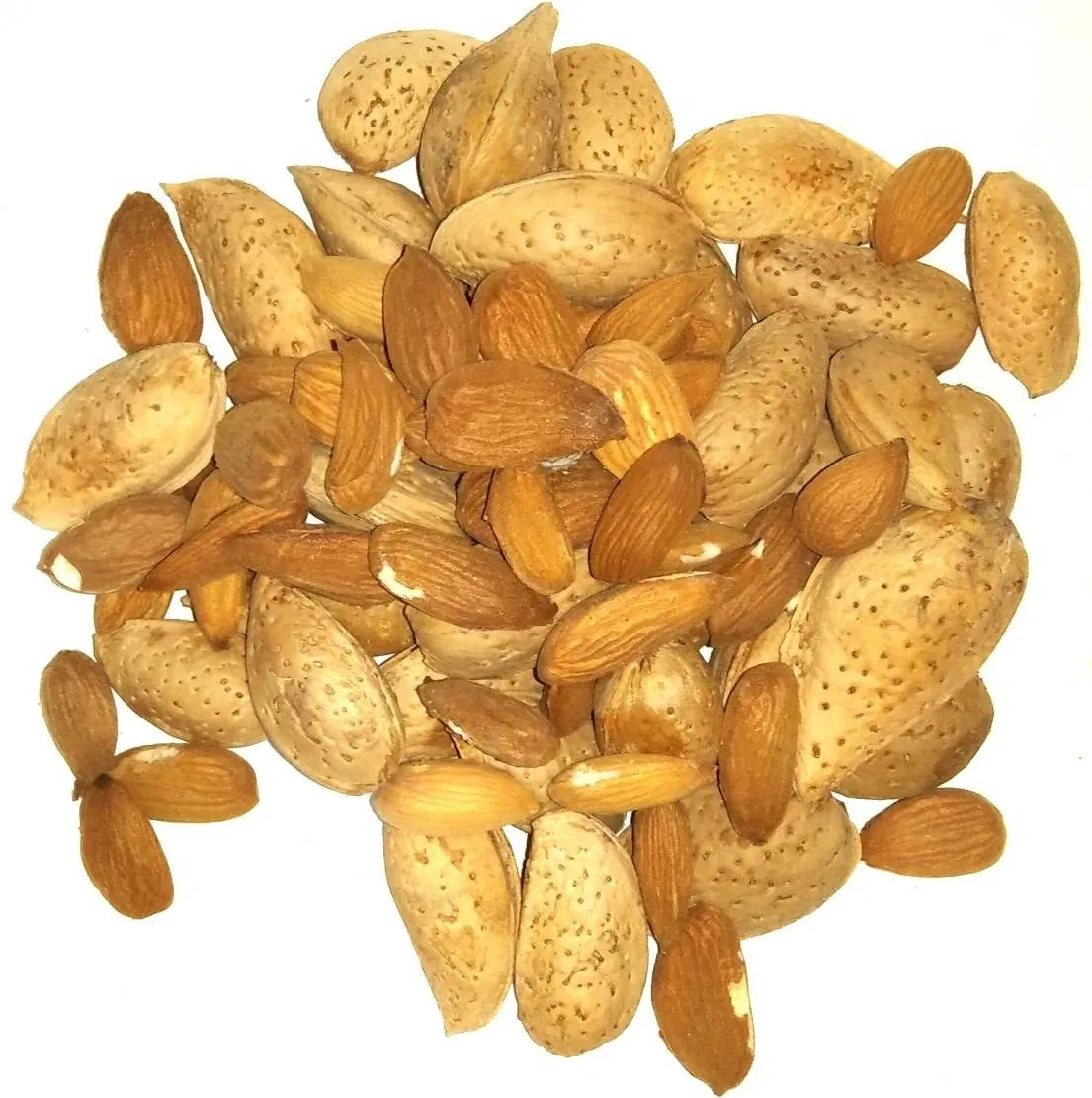Almond fruit, scientifically known as Prunus dulcis, is widely recognized for its nutritional value and health benefits worldwide. Despite being native to the Mediterranean region, almonds have gained popularity globally, becoming a staple in several cuisines and industries. In recent years, Nigeria has shown tremendous potential for almond cultivation due to favorable agro-climatic conditions and increasing local demand.
1. Agro-climatic conditions in Nigeria:
Nigeria possesses diverse agro-climatic zones, making it conducive for the growth of various fruit crops, including almonds. The country’s climate is broadly categorized into a tropical rainforest zone, a tropical savannah zone, and a semi-arid Sahelian zone. These regions offer favorable temperatures, precipitation, and soil conditions that are suitable for almond cultivation.
2. Local demand and economic potential:
The demand for almonds in Nigeria has seen significant growth in recent years due to increased awareness of their health benefits and the growing popularity of plant-based foods. Almonds are highly sought after for their nutritional profile, including high protein, healthy fats, vitamins, and minerals. The rising health-conscious middle class, coupled with a growing number of individuals embracing vegetarian and vegan diets, has led to increased domestic consumption.
Nigeria imports a substantial quantity of almonds annually to meet the growing demand, costing the country significant foreign exchange. Therefore, cultivating almonds locally presents a significant economic opportunity, reducing dependence on imports and enhancing the agricultural sector’s contribution to the nation’s GDP.
3. Potential challenges and mitigating strategies:
While Nigeria possesses favorable conditions for almond cultivation, there are potential challenges that need to be addressed. Some of these challenges include:
a) Lack of awareness and technical expertise: Many farmers in Nigeria may not be familiar with almond cultivation techniques. Promoting awareness and providing technical expertise through workshops, seminars, and extension services can help overcome this challenge.
b) Pest and disease management: Almonds are susceptible to several pests and diseases, which can negatively impact yields. Strengthening pest and disease management strategies through integrated pest management (IPM) practices and the use of certified disease-free planting material can help mitigate these risks.

c) Access to quality planting materials: Availability of quality planting materials is essential to establish a successful almond orchard. Encouraging the establishment of certified nurseries that produce disease-free and high-yielding almond seedlings can help ensure a steady supply of quality planting materials.
d) Irrigation and water management: Almond trees require adequate water throughout their growing season. Developing efficient irrigation systems and promoting water conservation practices can help overcome water scarcity challenges, especially in semi-arid regions.
4. Government support and policies:
The Nigerian government has recognized the potential of almond cultivation and is actively promoting the growth of the sector. Initiatives such as the Agricultural Transformation Agenda (ATA) and the Anchor Borrowers’ Program provide support to farmers, including access to finance, improved infrastructure, and technical guidance.
Moreover, the government has implemented policies aimed at diversifying the economy away from oil dependency, emphasizing agricultural development. Incentives such as tax breaks, subsidized inputs, and research grants further encourage farmers to venture into almond cultivation.
5. International market opportunities:
Apart from meeting domestic demand, Nigeria has the potential to become a major exporter of almonds in the international market. With the right infrastructure, quality control measures, and adherence to international production standards, Nigerian almonds can find a market in both regional and global economies.
Almond-based products such as almond oil, flour, butter, and milk have significant demand in the global market. Establishing processing facilities to produce value-added almond products can drive export opportunities and boost the economy.
Conclusion:
The cultivation of almonds in Nigeria presents a significant opportunity for agricultural and economic growth. With favorable agro-climatic conditions, increasing local demand, and government support, almond farming has the potential to create employment opportunities, reduce imports, and improve the nation’s foreign exchange earnings. Addressing challenges through awareness campaigns, improved technical expertise, and strategic policies will be vital in maximizing the benefits of almond cultivation in Nigeria.1. Market Potential for Almond Products in Nigeria:
The market potential for almond products in Nigeria is immense. With a population of over 200 million people and a rising middle class, the demand for healthy and nutritious foods is on the rise. Almond-based products, such as almond milk, almond butter, and almond flour, have gained popularity as alternatives to dairy and wheat-based products. The health-conscious consumer base in Nigeria is actively seeking these products, creating a lucrative market for entrepreneurs in the food industry.

2. Investment Opportunities in Almond Farming:
Investing in almond farming in Nigeria can be a profitable venture. The initial investment includes land acquisition, planting materials, irrigation systems, and infrastructure development. However, once the almond orchard is established, the returns can be promising. Almond trees take several years to reach full production, but once mature, they can bear fruit for multiple decades. This long-term investment can provide a stable income stream for farmers and investors alike.
3. Value Addition and Processing:
Aside from exporting raw almonds, there is a tremendous opportunity to add value to almond products through processing. Establishing almond processing facilities in Nigeria would enable the production of almond oil, almond flour, almond butter, and other value-added products. These processed products have a longer shelf life, making them suitable for both domestic consumption and export. Entrepreneurs in the food processing industry can tap into this market, creating employment opportunities and boosting the economy.
4. Export Potential and Foreign Exchange Earnings:
Nigeria’s almond cultivation potential extends beyond meeting domestic demand. The country has the opportunity to become a major exporter of almonds and almond products. Nigerian almonds can find a market in neighboring West African countries and even gain traction in international markets. Exporting almonds would not only reduce the trade deficit but also generate foreign exchange earnings for the country, contributing to economic growth and stability.
5. Employment Generation:
Almond farming and processing have the potential to create significant employment opportunities in Nigeria. From farm labor to management roles in processing facilities, the industry can provide jobs to thousands of individuals. Additionally, ancillary industries such as logistics, packaging, and marketing can further contribute to job creation. The creation of employment opportunities in the agricultural sector can help reduce unemployment rates and stimulate economic development.
6. Sustainability and Environmental Benefits:
Almond cultivation is considered a sustainable agricultural practice that offers environmental benefits. Almond trees are known for their ability to sequester carbon dioxide from the atmosphere, helping to mitigate climate change. Moreover, almond orchards promote soil health and biodiversity, making them integral to sustainable farming practices. Embracing almond farming in Nigeria can contribute to a more sustainable agricultural landscape and align with the country’s goals for environmental conservation.
7. Public-Private Partnerships and Collaborations:

To unlock the full potential of almond cultivation in Nigeria, public-private partnerships and collaborations can play a crucial role. Government organizations, research institutes, financial institutions, and private enterprises can work together to provide technical support, access to finance, and marketing networks. These collaborations can foster knowledge exchange, enhance research and development efforts, and create a supportive ecosystem for almond farming and processing.
8. Capacity Building and Training Programs:
To ensure the success of almond cultivation in Nigeria, capacity building and training programs are essential. These programs can target farmers, extension services, and agronomists to educate them about almond cultivation techniques, pest and disease management, and post-harvest practices. Government agencies, agricultural institutes, and private organizations should collaborate to organize workshops, seminars, and training sessions to disseminate valuable knowledge and expertise.
9. Quality Control and Standardization:
To compete in the global market, Nigerian almond products must adhere to international standards of quality and safety. Implementing quality control measures from farming to processing stages is critical to ensure the production of high-quality almonds and almond-based products. The Nigerian government can establish regulatory bodies to enforce quality control and certification processes, providing assurance to consumers and international buyers.
10. Market Access and Trade Agreements:
To boost the export of Nigerian almonds and almond products, establishing trade agreements and improving market access is crucial. The government should engage in negotiations with potential importers and participate in regional and international trade fairs to showcase Nigerian almond products. Collaborating with trade associations and leveraging diplomatic channels can assist in market access and facilitate advantageous trade agreements.
11. Research and Development:
Investing in research and development for almond cultivation is vital to promote innovation and improve crop yields. Research institutions, universities, and agricultural organizations should conduct studies to develop new almond varieties suited to Nigerian conditions, optimize irrigation techniques, and enhance pest and disease management strategies. Such advancements in research can contribute to increased productivity and profitability for almond farmers in the country.
12. Promotion of Almonds for Nutrition and Health:
Boosting the awareness and consumption of almonds for their nutrition and health benefits should be a priority. Collaborative efforts between government agencies, health organizations, and the food industry can engage in awareness campaigns promoting the nutritional value of almonds. Educating consumers about the health benefits of almonds and incorporating them into public health initiatives can contribute to a healthier population and drive demand for almond products.

Conclusion:
Nigeria possesses all the necessary elements to flourish in almond fruit cultivation. With favorable agro-climatic conditions, growing domestic demand, and government support, the country has a significant opportunity to tap into this lucrative market. Encouraging investments, strengthening value addition and processing, promoting exports, and emphasizing sustainability will be key to unlocking the full potential of almond cultivation in Nigeria. By capitalizing on these opportunities, Nigeria can diversify its agricultural sector, enhance food security, create employment, and contribute to economic growth.









